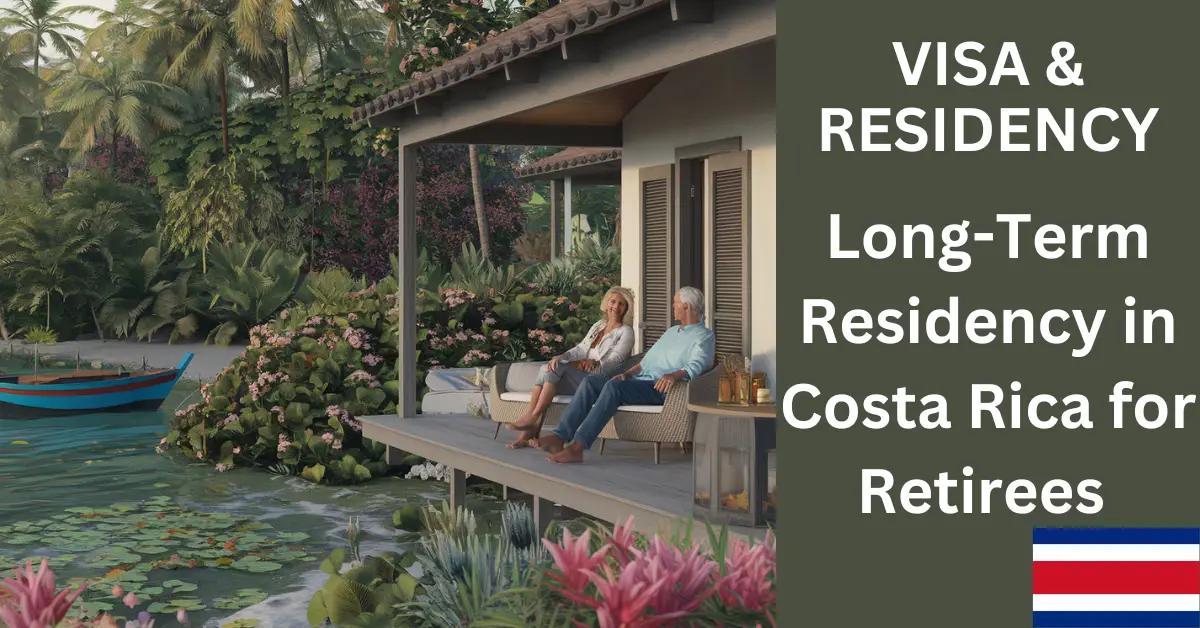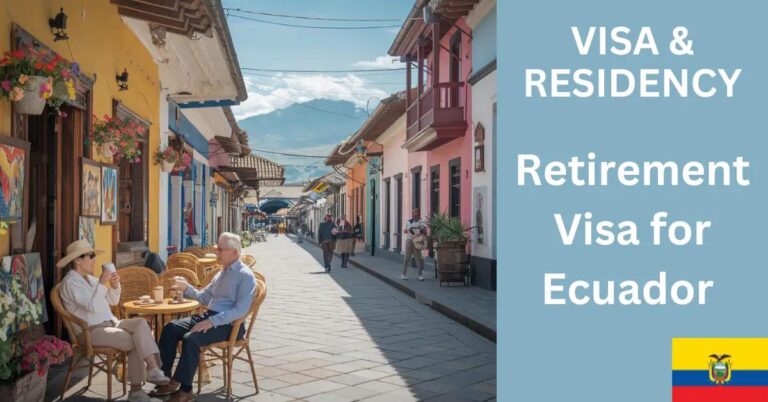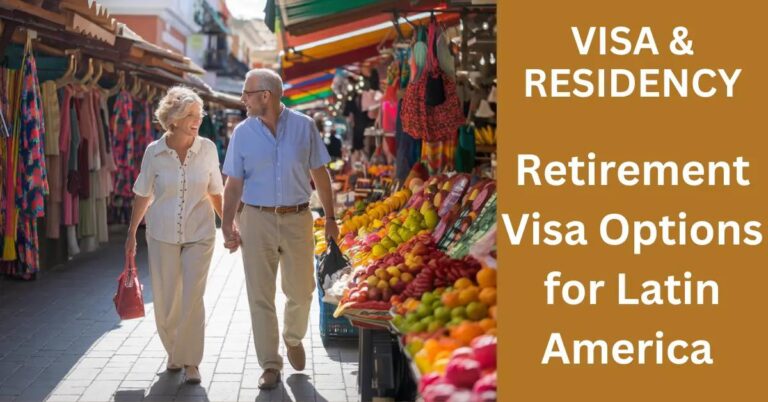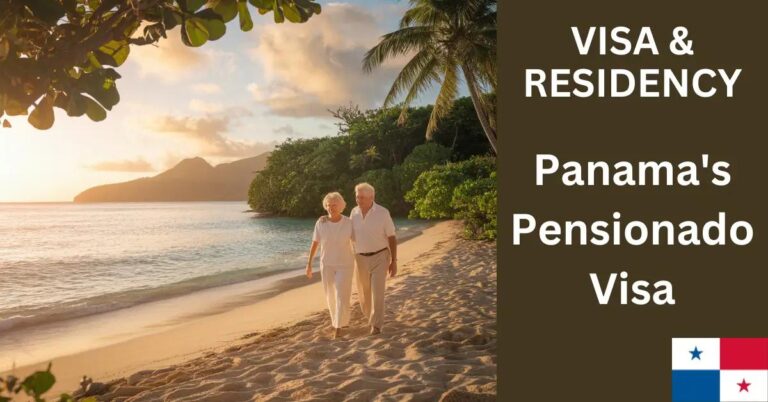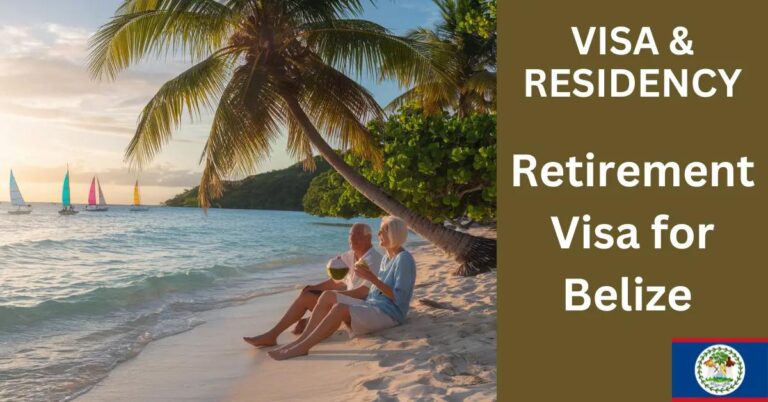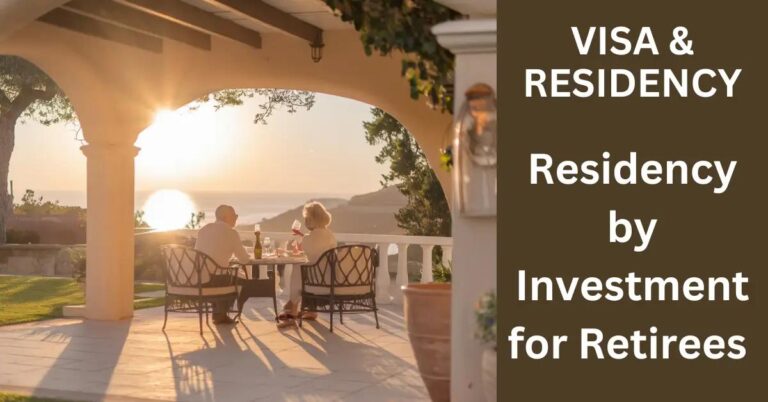TL;DR:
- Pensionado Program: Requires $1,000 monthly pension for residency; provides tax breaks, duty-free imports, & access to public healthcare.
- Rentista Program: Needs $2,500 monthly income or $60,000 bank deposit for residency.
- Residency Process: Takes 6-12 months; legal help is advised.
- Living Costs: Rent $600-$1,500/month; utilities $50-$150; groceries $300-$600.
- Healthcare: Public system includes Caja; private care is faster but costly.
- Ideal Locations: Central Valley & Guanacaste, safe & expat-friendly.
- Property Investment: Secure, offers community benefits, requires legal guidance.
- Safety: Generally safe in selected areas; expats advised to be cautious.
- Transportation: Uses both public (buses) and private (cars); driving needs local license after 90 days.
- Taxes: Foreign income not taxed; US-Costa Rica agreement prevents double taxation.
- Social Activities: Many clubs/events available; expat & volunteer opportunities enrich experience.
Dreaming of sunny retirement days in Costa Rica? You're not alone! This tropical paradise calls to retirees worldwide. But, is it the right fit for you? We'll dive into the ins and outs of long-term residency for retirees, including residency options, legal shifts, and the vibrant Pensionado Program. Plus, learn about living costs, healthcare and where to live, ensuring your golden years shimmer in the lush beauty of Costa Rica. Let's explore together!
What Are the Available Residency Options for Retirees in Costa Rica?
Costa Rica offers several residency options for retirees. The most popular one is the Pensionado Program. To qualify, you need a pension of at least $1,000 per month. This program allows you to live in Costa Rica with some benefits, like discounts on goods and services.
But there are other types of residency permits too. If you want to invest more, the Rentista Program might suit you. For this, you must prove a monthly income of $2,500 for two years or make a $60,000 deposit into a Costa Rican bank.
Now, let’s address an important question: How much money do you need to get residency in Costa Rica? The answer depends on the residency type you choose. For the Pensionado Program, a $1,000 monthly pension suffices. For the Rentista Program, a $2,500 monthly income or a $60,000 deposit is needed.
Remember, there are both temporary and permanent residency options. Temporary residency, like the Pensionado or Rentista, offers a renewable permit. You must renew it every two years. Permanent residency offers more stability. To apply, you must maintain a temporary residency for three years.
So, let's recap the main costs and requirements. For Pensionado, it's a $1,000 monthly pension. For Rentista, it's proof of $2,500 monthly income or a $60,000 bank deposit. These financial requirements help ensure you can support yourself in Costa Rica.
Understanding Costa Rican residency laws will guide you in making the right choice. Each residency option has different benefits and requirements. Choose wisely to enjoy your retirement in the beautiful country of Costa Rica. To learn more about specific legal processes, you can explore this residency guide to find the best fit for your needs.
How Do New Residency Laws Affect Retirees?
Costa Rica has updated its residency laws. How do these changes affect retirees? The new laws simplify some rules, which can help retirees. Yet, the process still needs careful attention.
To get residency in Costa Rica, you must meet new rules. Each case differs, so know what's needed for you. Understanding these changes involves details, like income proof or document needs. Rules can confuse, and missing a step may lead to delays.
How long does it take to get residency in Costa Rica? Generally, the process can take six to twelve months. Yet, factors such as application mistakes or missing documents can slow things down. So, knowing all steps can speed up the process.
Legal help can be crucial here. Why is legal assistance important for retirees? Legal experts guide you through these updates and help avoid problems. They ensure you meet new rules and prepare all you need.
Retirees benefit from knowing the latest laws. Having good advice can make the road to residency smoother. It keeps your plans on track and helps with new life changes.
For more details on Costa Rican residency laws, check the official Costa Rican Immigration website.
What Are the Benefits of the Pensionado Program?
People often ask, "Why retire in Costa Rica?" One big reason is the Pensionado Program. This program offers great perks to retirees. Let's look at these benefits together.
A favorite benefit is the tax incentives. Retirees do not pay taxes on income earned outside of Costa Rica. This can mean a big boost to one's retirement savings. Also, many household goods come in duty-free. This makes moving less costly.
Next, consider the financial perks. Retirees only need to show proof of $1,000 monthly income. This is lower than many places. It makes Costa Rica a top choice for retirees with limited funds.
Now, let's discuss healthcare. Costa Rica has great public health services. The Pensionado Program grants access to the national healthcare system, Caja. Caja provides good care at lower costs. Many retirees find this a major draw.
But how does this program compare to others? In Costa Rica, you enjoy a stable government and friendly locals. Panama, for instance, also has a retirement program. But, many say Costa Rica feels safer and friendlier. Each country has its perks, but Costa Rica's nature and culture make it unique.
In addition, we should touch on public services access. The Pensionado Program allows for other public benefits. Services like public transit are more affordable. Retirees gain access to local fairs, events, and facilities. This enhances the retirement experience.
For further details about the Pensionado Program, including the latest updates, an insightful resource can be found on the National Migration Office.
How Much Does Living in Costa Rica Cost for Retirees?
Can you live in Costa Rica on your Social Security? Yes, many do, and here's how!
Costa Rica offers retirees a cost-effective lifestyle. Let’s break down the expenses.
Housing and Utility Costs:
Housing will likely be your largest expense. In Costa Rica, expect to pay $600 to $1,500 monthly for rent. The price depends on location and size. Utilities like water and electricity are often between $50 to $150 a month.
Grocery and Dining Expenses:
For groceries, budget about $300 to $600 monthly. Local markets offer fresh produce at great prices. Eating out, especially at local spots, is affordable. A meal can cost just $5 to $10 in small cafes.
Comparing Living Costs:
Costa Rica has one of the higher costs in Central America. Yet, it still remains lower than in the U.S. or Europe. Nearby countries like Nicaragua are cheaper but may lack Costa Rica’s amenities.
Lifestyle Choices:
Retirees often choose cities like Grecia or Atenas to save money. These areas offer a good balance of price and comfort. Simple living and using public services can further reduce costs.
For more on managing expenses and living well, explore resources on cost-effective lifestyle choices.
Choosing Costa Rica can be a rewarding and budget-friendly option for many retirees.
What Healthcare Options Are Available for Retirees?
Retiring in Costa Rica offers diverse healthcare choices. You can choose between public or private healthcare. Both have their strengths, but they differ in price and wait times.
The public healthcare system, called Caja, is open to all. It provides good basic care at low monthly costs. You pay based on income, and it means you can access hospitals and clinics around Costa Rica. However, the public system may have long wait times for some treatments.
Private healthcare is also available, offering faster service and more comfort. It’s pricier, but the quality of care is high. Many private doctors and staff speak English. This is useful if you’re not fluent in Spanish yet. Consider if a mix of public and private care fits your needs.
Insurance options are vital when living here as an expat. There are several choices to consider. You can buy insurance through the national system or private companies. Most expats choose private insurance because it often covers international care. This is beneficial if you need treatment outside Costa Rica.
No matter your choice, Costa Rica boasts quality medical facilities. They have modern equipment and skilled doctors. Many are trained in the United States or Europe. Major cities like San José host reputable hospitals. In rural areas, access may vary, so plan accordingly.
When considering these healthcare options, think about cost and standards. The amount you are willing to pay may affect your quality of care. Compare plans and read reviews to make the best decision for your needs. Having a reliable healthcare plan eases your mind, letting you enjoy retirement to the fullest.
Which Places are Ideal for Retirees Relocating to Costa Rica?
Most retired Americans choose to live in areas like the Central Valley or Guanacaste. These places offer a mix of comfort and nature. You can enjoy both city-like amenities and tropical foliage. Communities in these regions are home to many expats who have settled nicely in Costa Rica.
In the Central Valley, you'll find towns like Atenas and Escazú. These towns are popular due to their great weather and proximity to the capital, San José. This means that you have easy access to quality healthcare and top shopping centers. Many expat communities provide social gatherings, making it easy to meet new people and make friends.
Guanacaste, on the other hand, is famous for its beautiful beaches and sunny climate. Cities such as Tamarindo and Playa Flamingo are buzzing with energy. These places offer lively expat communities and plenty of outdoor activities. You can take part in beach walks, water sports, and yoga retreats right by the ocean. There are communities that provide amenities like swimming pools, gardens, and clubhouses for relaxed living.
Moving to these areas gives you access to great amenities without losing your comfort. Proximity to healthcare is something you'll appreciate, especially in Escazú, which has good hospitals nearby. Shopping spots and social activities are never too far away, so your daily needs are right at your doorstep.
When relocating to Costa Rica, it is wise to consider what kind of community suits your lifestyle. You might prefer the cooler climate of the Central Valley or the warm beaches of Guanacaste. Both areas offer rich cultures and friendly locals, making your retirement a joyful experience. Enjoy vibrant expat communities and choose a place where you feel at home.
What Are the Requirements for a Retiree Visa?
To obtain a retiree visa for Costa Rica, you need to meet certain requirements. You might ask, "What are Costa Rica retirement visa requirements?" Here's what you need to know.
First, you must provide proof of income. Costa Rica requires retirees to have a monthly income of at least $1,000. This is often from a pension. This income must continue for the duration of your stay.
You'll also need valid travel documents. This includes a valid passport. Make sure your passport will not expire soon. Costa Rica expects at least six months of validity on your passport.
The application process comes with some steps. Start by gathering your documents. You need a birth certificate and a police clearance. These documents prove your identity and background.
Next, fill out the necessary forms. Costa Rica provides a specific application for retiree visas. Ensure all information is accurate. Mistakes can delay your application.
Submitting your application is the next step. This might seem tricky. You can do it through Costa Rica's immigration department. If unsure, consider seeking legal help.
Timing is crucial when applying. Processing takes time, so plan ahead. It can take up to six months for approval. Applying early avoids last-minute stress.
Remember that you may need translations. Costa Rica may ask for documents in Spanish. A certified translator can help with this.
Finally, consider the financial criteria beyond income. You may need to show health insurance. Costa Rica wants you to have coverage while living there.
These steps and requirements are crucial. Meeting them makes the retiree visa process smoother. For any questions, visit the Costa Rican Immigration website for updates.
How Can Investing in Costa Rica Property Benefit Retirees?
Investing in property here can bring many rewards for retirees. It secures a place to call home and can yield returns, especially with beachfront property investment opportunities. Beach areas remain popular among retirees, providing a peaceful retreat and a chance to enjoy stunning scenery daily.
What should retirees understand about the market? Market knowledge is crucial. Costa Rica values its land, and prices reflect that. The countryside and city areas offer different living experiences. Retirees need to engage with local agents to understand these differences. This knowledge helps you find property that's both welcoming and affordable.
Are there legal steps to consider before buying? Absolutely. Retirees should handle property purchases carefully. Hiring a local lawyer ensures that all legal requirements are met. Knowing Costa Rican property laws can prevent future issues. Plan your finances, know your budget, and consider any hidden costs. It's essential to avoid overspending.
What do seasoned expats say about owning property here? Many retired expats confirm the joy and security of living in their own homes. They highlight the stable economy and vibrant social life, which enhance living here. Community ties grow when homeownership adds a sense of belonging and stability. Owning a property lets retirees fully integrate into local life.
What extra advice do retired expats offer? They suggest visiting different regions before deciding where to buy. Experiencing various places helps identify what suits personal needs best. Also, building relationships with neighbors and local workers can create invaluable support networks. These ties make retirement in Costa Rica deeply rewarding and secure.
In essence, property investment in Costa Rica offers retirees more than just a home. It brings potential financial benefits and deep community ties. With proper planning and understanding, owning property here can enrich your retirement journey.
How Do Culture and Lifestyle Enhance the Retirement Experience in Costa Rica?
Retirees in Costa Rica can experience vibrant daily life steeped in rich culture. You will find many cultural events and traditions that bring retirees together and deepen their connection to the community. Understanding basic Spanish opens doors to meaningful interactions. It helps retirees feel more included in day-to-day social happenings. You won't need to be fluent, but learning a few key phrases can serve you well.
Participating in local traditions and festivals is another great way to connect. Events like the Festival of Lights and Independence Day offer a peek into Costa Rica's traditions. You can meet locals, enjoy music, and taste incredible food. These events can give you a sense of belonging and enrich your retirement.
Adapting to Costa Rican norms and practices is important, too. Life here often moves at a slower, more relaxed pace. This "pura vida" lifestyle is inviting and can improve your quality of life. Simple things like greeting people with a smile or a "buenos días" make daily interactions warmer and friendlier.
Some retirees face challenges when retiring in Costa Rica. Understanding cultural norms can sometimes be a learning curve. It takes time to adjust to new rhythms of life and practice patience in everyday matters, like customer service and government offices.
In sum, engaging with the culture and lifestyle of Costa Rica enhances retirement here. By embracing local customs, learning the language, and joining in with community events, you gain more than just a retirement destination. You gain a new way of life filled with warmth, color, and connection.
How Safe Is Costa Rica for Retirees?
When considering a move, safety in Costa Rica for retirees is crucial. So, is Costa Rica safe? Based on facts, Costa Rica is generally safe, but it varies by area.
Crime Rates in Various Regions
Crime rates in expat areas like San José and Limón tend to be higher. But places like Atenas and Tamarindo offer lower crime rates, making them attractive to retirees. The key is to choose regions carefully based on accurate data.
Safety Tips for Retirees
What precautions should retirees take? Always be aware of your surroundings. Keep valuables hidden or at home. Use reputable transport services. Familiarize yourself with local emergency numbers and locations of the nearest police stations.
Community Resources and Support Systems
Many community resources assist retirees. Expat organizations often provide helpful safety advice. Neighborhood watch programs can be valuable, ensuring cooperation among residents for increased security.
Evaluating the Safest Regions for Retirement
Where are the safest regions to retire in Costa Rica? Regions like the Central Valley, Escazú, and Santa Ana are popular, offering both safety and amenities. These areas often have a strong expat community, which provides support and camaraderie.
Conclusion
Costa Rica offers many safe regions for retirees. By selecting the right area and taking basic safety steps, retirees can enjoy a peaceful and secure life. For more details on safety tips, reliable resources like U.S. Embassy in Costa Rica can offer further guidance.
What Are the Transportation Options in Costa Rica?
Costa Rica offers a variety of transportation options that can fit different needs.
Let's start with public transportation, which is widely available across the country. Buses are the most common and cost-friendly option. They connect cities, towns, and rural areas, making travel easy and affordable. While buses are reliable, they might not always be the most comfortable for long trips.
If you prefer more independence, consider car ownership. Driving gives you flexibility to explore at your own pace. However, Costa Rica's roads can be tricky to navigate, with some areas having challenging terrain. It's important to drive cautiously and keep an eye out for road signs and local traffic customs.
When it comes to driving, using a local vs. international driving license has its perks and pitfalls. Your international license allows driving for the first 90 days. After that, you'll need a local license, which means passing a driving test. A local license is great for those settling in long-term, as it avoids any hiccups with authorities.
For those who enjoy physical activity, alternatives like biking and walking can be ideal. Certain regions, especially in the cities or near the beach, are friendly for cyclists and pedestrians. Sidewalks and bike lanes are common in these areas, making daily errands easy and fun.
These transportation choices cater to a range of preferences and lifestyles. Whether using public transport, driving, or biking, Costa Rica has options that support both comfort and convenience. For further insights, I recommend checking out Costa Rica’s Public Transport Guide.
Consider your needs and circumstances to choose the best way to travel in Costa Rica.
How Can Retirees Stay Connected in Costa Rica?
Staying connected in Costa Rica is important for retirees. Reliable internet makes this easy. Most areas have access to good internet through companies like ICE, Claro, and Tigo. In some rural spots, internet speed might be slower. Be sure to check the coverage when you choose your area.
Mobile phone plans in Costa Rica are easy to set up. Companies offer various plans with data and calling options. You can use your phone from home with a Costa Rican SIM card. International calling can be costly, so check plans for calling abroad.
You might miss family and friends back home. Technology makes it simple to stay in touch. Use apps like WhatsApp, Skype, and Zoom to call and video chat. Social media also helps you keep up with news and photos.
Managing digital life abroad can seem tricky, but it’s manageable. To keep your devices secure, use a virtual private network (VPN) for safe browsing. Check your data usage regularly to avoid extra costs. Updating your devices keeps them working well.
Living abroad can feel lonesome sometimes. Joining expat groups and forums online helps you connect with others. These communities often share tips and local news. They make it simpler to adapt to life in Costa Rica.
For more information on living in Costa Rica, take a look at International Living resources.
How Do Taxes Affect Retirees in Costa Rica?
Can you retire in Costa Rica as a US citizen? Yes, US citizens can retire in Costa Rica. However, understanding taxes is key.
Retirees in Costa Rica must know their tax obligations. Costa Rica taxes income from within the country. Foreign income isn't taxed here, which is good for retirees. But, it is important to stay updated on tax rules, as they can change.
One concern for retirees is double taxation. Luckily, Costa Rica has an agreement with the US to avoid taxing the same income twice. This Double Taxation Agreement helps retirees keep more of their income.
Financial planning for moving abroad is vital. You must plan your finances to enjoy your retirement fully. Consider talking to a tax expert familiar with both US and Costa Rican laws.
Retirees should use strategies for tax-efficient planning. This can involve adjusting where your money goes. Think about where to keep assets or how to receive payments. It makes a big difference in how much tax you pay.
Staying informed about changes in taxation laws is crucial. Laws can change, affecting your retirement plans. Keep an eye on updates or sign up for news alerts. This way, you're never caught off-guard.
Moving to a new country involves many things to consider. Taxes are a big part of financial planning for moving abroad. Plan ahead so your retirement in Costa Rica is as relaxing as possible. For more detailed information on Costa Rican taxes, you can check resources such as these on Costa Rican residency laws.
What Social Activities Are Available for Retirees in Costa Rica?
Retiring in Costa Rica offers a rich array of social activities. Many towns host community events and clubs, where retirees can connect. You might join arts, music, or dance groups that reflect your interests. These gatherings are great for making friends and feeling at home in a new place.
Retirees often look to give back through volunteer opportunities. Costa Rica is famous for its dedication to nature and community. You can join environmental projects, teach language classes, or participate in community development. These activities not only enrich your life but also help integrate you into local communities.
Outdoor activities are a big draw for many retirees. If you enjoy nature, you'll love Costa Rica’s hiking trails, bird-watching tours, and beachfront yoga. There are golfing communities where you can perfect your swing. Many retirees join walking or cycling groups as well. These recreational activities promote health and keep social circles buzzing.
To make new friends, consider strategies for building a new social network. One effective way is through expat groups or clubs. Joining expat social networks can help ease the adjustment phase. Online platforms or local meet-ups can help you meet others with similar interests. These networks often share tips on local living and explore fun activities together.
Immersing in Costa Rican culture helps in building lasting relationships. Attend local festivals, share meals with neighbors, and participate in local customs. Learning some basic Spanish will make interactions smoother and more rewarding. This involvement can transform your retirement years into a vibrant new chapter full of meaningful connections.
For more expansive options on activities, explore Costa Rica Retirement Information. Through engagement and integration, you'll find Costa Rica a welcoming place to retire.
Conclusion
Living in Costa Rica as a retiree offers diverse residency paths and benefits. From understanding visa requirements to embracing the Pensionado Program, you'll find financial perks and vibrant communities to call home. Navigating new residency laws emphasizes the need for legal guidance. Consider affordable living options, healthcare choices, and the vibrant culture that enhances your retirement experience. Proper financial planning, understanding tax duties, and engaging in social activities are key to a successful transition. Costa Rica promises a fulfilling retired life filled with opportunity and adventure.

